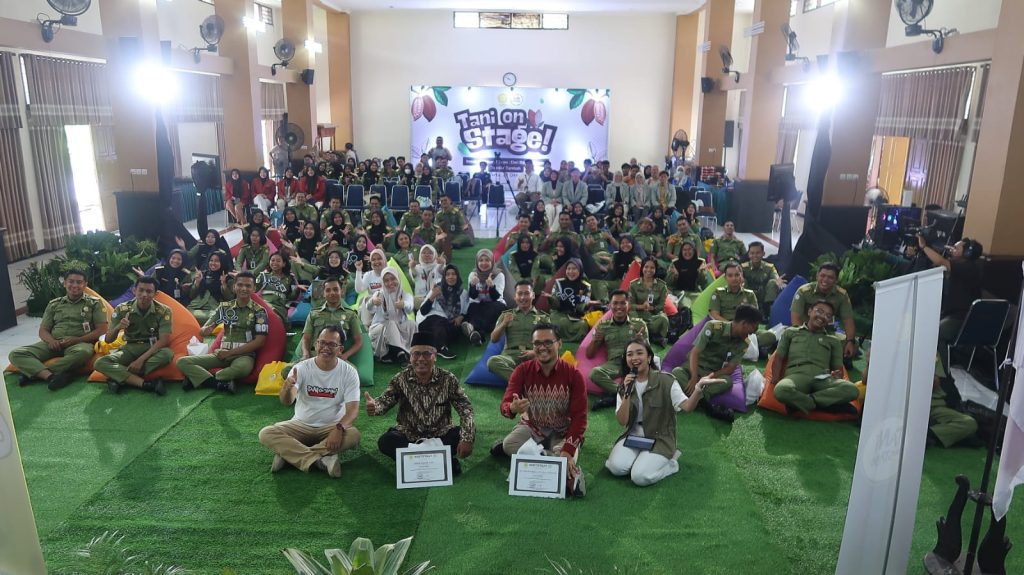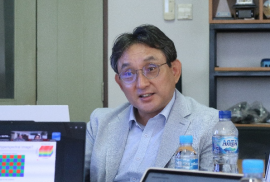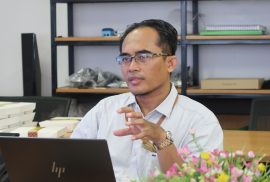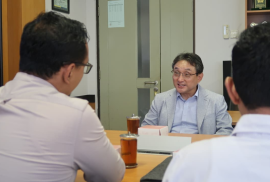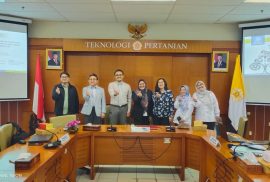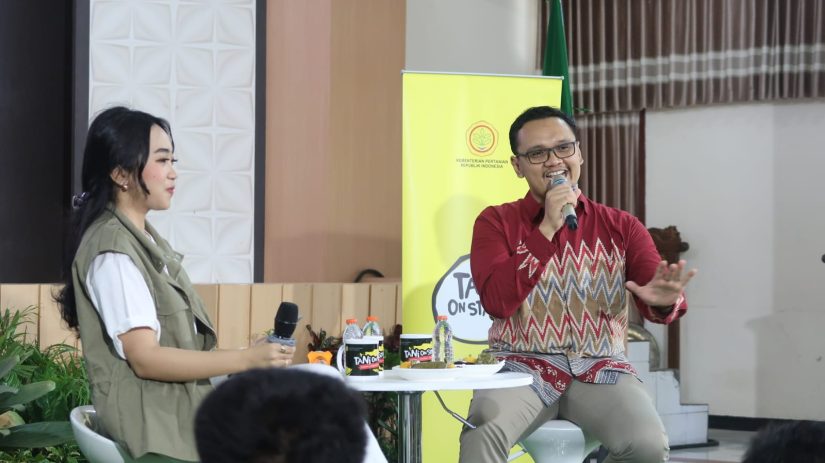
Yogyakarta, October 21, 2025 —Cocoa is one of Indonesia’s leading agricultural commodities, ranking sixth among the world’s largest cocoa exporters, according to data from the International Cocoa Organization (ICCO). However, the diversification of cocoa-based products in Indonesia remains limited. Small and medium enterprises (SMEs) in the bean-to-bar sector still face challenges in producing cocoa products that meet global quality standards, while cocoa farmers often receive profits that are not proportional to their efforts.
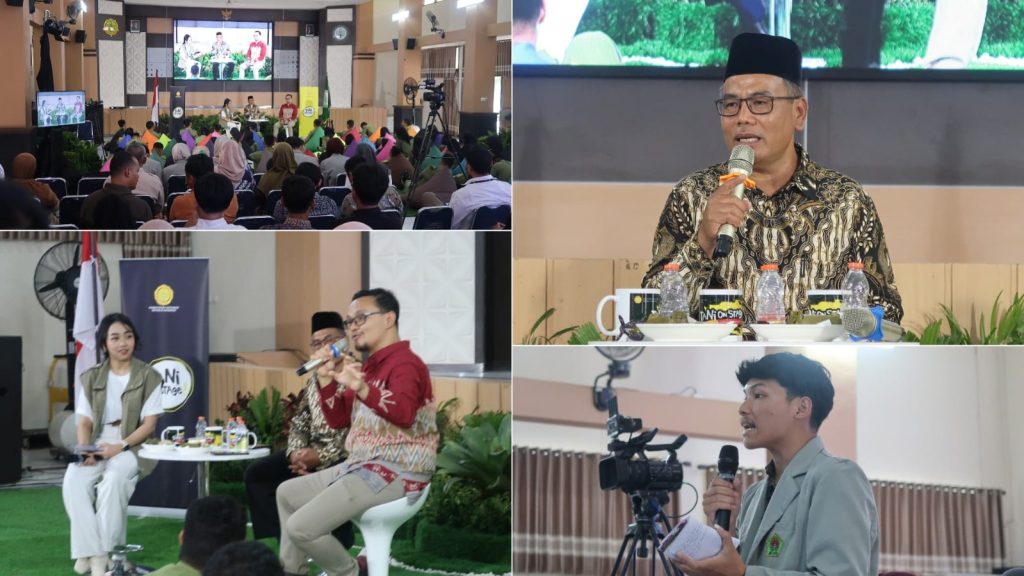
In response to the current condition of the cocoa commodity, the Ministry of Agriculture, through the Bureau of Communication and Public Services of the Secretariat General, held an interactive talk show titled “Tani On Stage: Cocoa Downstream Innovation – From Cocoa Beans to Value-Added Chocolate”, hosted at the Agricultural Development Polytechnic Yogyakarta–Magelang.
The event featured speakers from government, academia, and industry, including Dr. Arifin Dwi Saputro, S.T.P., M.Sc. (Lecturer at the Department of Agricultural and Biosystems Engineering, Faculty of Agricultural Technology, Universitas Gadjah Mada), Dr. Kuntoro Boga Andri, Ph.D. (Director of Downstream Plantation Product Development, Directorate General of Plantation, Ministry of Agriculture), and Mr. Ahmad Nasrodin (Founder of Omah Kakao Doga).
Understanding Cocoa, Cacao, and Chocolate
In his presentation, Dr. Arifin opened the session by asking a thought-provoking question to the participants:
“What is the difference between cocoa, cacao, and chocolate?”
The question aimed to assess the participants’ understanding of the cocoa commodity and its derivative products. Several students responded correctly, showing that they understood the fundamental distinctions between the three.
Cacao refers to the plant and its raw, unprocessed beans; cocoa is the processed product obtained from fermented, dried, roasted, and ground cacao beans; while chocolate is the final product made by blending cocoa derivatives with other ingredients.
Challenges in Indonesia’s Cocoa Supply Chain
Answering the host’s first question about “The challenges of Indonesia’s cocoa supply chain,” Dr. Arifin explained that Indonesia’s ranking, once third globally, has now fallen to sixth place. He highlighted the significant rise in cocoa derivative prices but also noted a major obstacle: Indonesian consumers’ relatively low cocoa consumption rate — only 0.5 kg per capita per year, compared to 12 kg per capita per year in European countries.
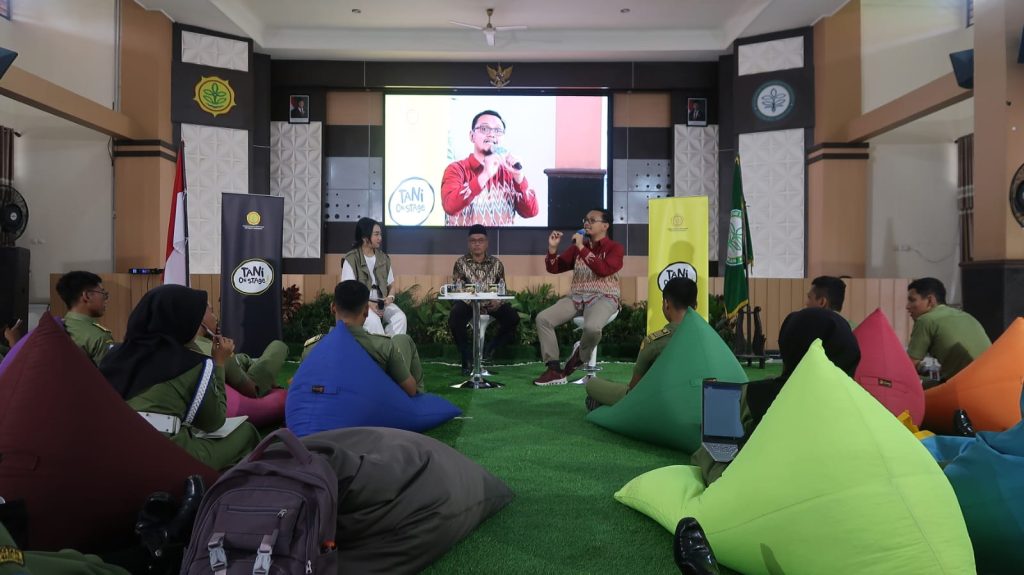
UGM’s Cocoa Processing Technology for SMEs
Responding to a question on “Technologies developed by UGM for cocoa processing and their potential for SMEs,” Dr. Arifin elaborated that the Faculty of Agricultural Technology (FTP UGM) has developed various technological applications to produce chocolate that meets global quality standards, both in processing and final product aspects.
From a process perspective, FTP UGM has designed cocoa-processing equipment tailored for small-scale enterprises — affordable, efficient, and easy to operate. From a product perspective, the faculty is currently developing heat-resistant premium chocolate formulations tested in laboratory settings.
Collaboration Between Government, Academia, and Industry
When asked about “Collaboration among government, academia, and industry to improve the quality of Indonesian chocolate,” Dr. Arifin emphasized that such efforts cannot be conducted in isolation.
He noted that the government must collaborate with academic institutions and industry players to formulate policies that support the downstream processing and diversification of cocoa products. Close coordination among these three stakeholders is essential to identify root challenges and design effective, targeted solutions.
Closing Message: Fostering Entrepreneurial Spirit through Agrotechnology
In closing, Dr. Arifin posed a reflective question to the participants:
“Who here aspires to become an entrepreneur?”
He highlighted that the essence of entrepreneurship lies in the courage to think differently, develop unique ideas, and persist in growing one’s business—no matter how small.
He also encouraged young people to explore niche opportunities within the agrotechnology sector and to adopt a mindset of job creation rather than job seeking.
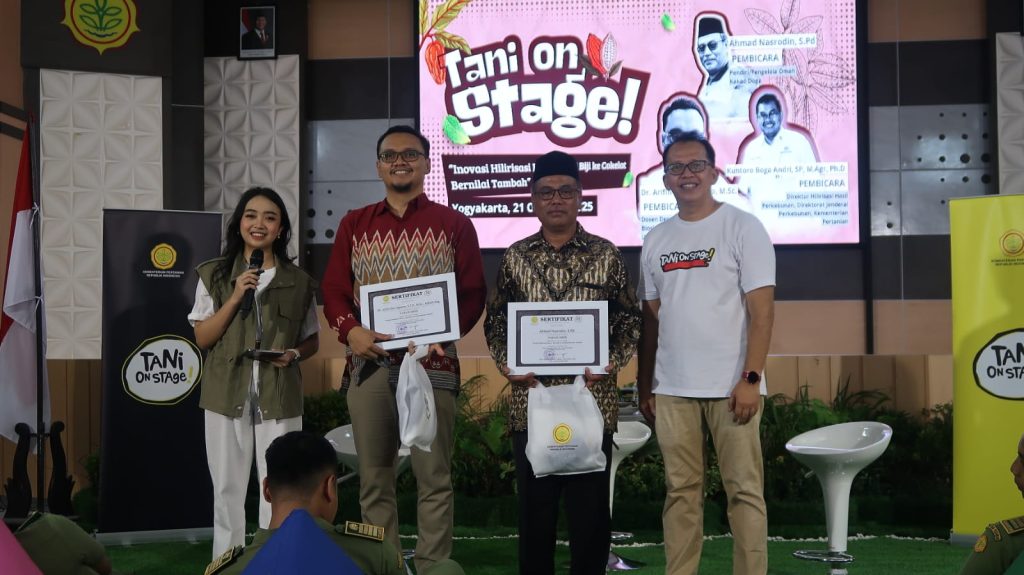
Supporting the Sustainable Development Goals (SDGs)
This activity aligns with the Faculty of Agricultural Technology UGM’s commitment to supporting the United Nations Sustainable Development Goals (SDGs), particularly:
-
SDG 2 – Zero Hunger: Strengthening sustainable cocoa value chains to enhance farmers’ welfare.
-
SDG 8 – Decent Work and Economic Growth: Promoting youth entrepreneurship and SME development based on agrotechnology.
-
SDG 9 – Industry, Innovation, and Infrastructure: Advancing innovative and globally competitive cocoa processing technologies.
-
SDG 12 – Responsible Consumption and Production: Encouraging efficient, environmentally friendly, and locally sourced chocolate production.
Through this initiative, the Department of Agricultural and Biosystems Engineering, FTP UGM, reinforces its role in bridging collaboration among academia, government, and industry to advance a sustainable, innovative, and inclusive agricultural and agro-industrial system.
